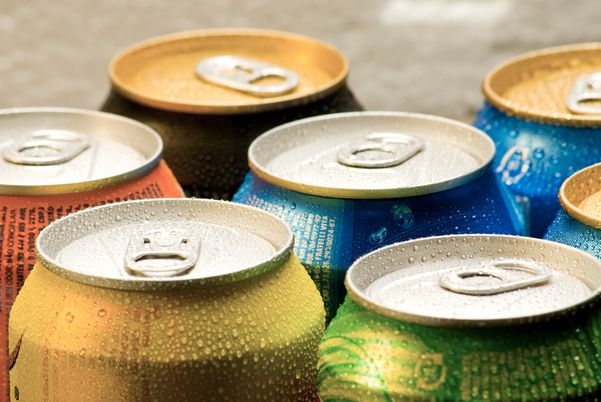Energy-drink giant Monster Beverage (MNST +0.90%) reported first-quarter earnings on Thursday, May 6. The results were roughly in line with Wall Street's expectations, but that felt like a letdown for a company that usually trounces analyst targets across the board. Market makers certainly took it that way, pushing Monster's shares 5% lower on Friday.
A global shortage of aluminum cans played a role in limiting Monster's financial results, but exactly how big of a difference did this industrywide issue really make? Let's have a look.

Image source: Getty Images.
What's going on?
Monster's net sales rose 17% year over year in the first quarter, landing at $1.24 billion. Your average analyst would have settled for $1.22 billion. Bottom-line earnings increased by 14% to $0.59 per diluted share. Here, the Street view called for $0.61 per share. Given that Monster doesn't give analysts official guidance targets to work with, I think it's fair to say that this report was broadly in line with expectations.
Management pointed out that aluminum shortages weighed on Monster's operations in North America and Europe. That's a result of the COVID-19 pandemic, which has limited mining operations around the world and wreaked havoc on the supply and-demand situation on a country-by-country basis. The quicker a region is coming back from last year's coronavirus recession, the harder it is to find aluminum at reasonable prices. On the earnings call, co-CEO Hilton Schlosberg said that aluminum prices are up 84% in the U.S. and 71% in Europe, compared to the year-ago period.
The metal is needed for infrastructure construction projects, for the recovery of the auto industry, and for a million other uses that drive aluminum prices higher. Even the true giants of the beverage industry are fighting this issue. Monster's global distribution partner Coca-Cola (KO +1.88%), for example, closed down the production of less popular drink flavors last summer because of a lack of aluminum cans, and some of the missing flavors may not come back.
What is Monster doing about it?
Monster is working around the North American and European shortages by importing aluminum cans from places like South America and Asia, where aluminum shortages are less pronounced. Therefore, the aluminum problem isn't limiting Monster's sales in any meaningful way. Net sales in the Europe, Middle East, and Africa region (EMEA) actually rose 28% in the first quarter, outpacing Monster's global growth. The cross-shipping of extra supplies did add to the company's operating costs, slicing EMEA's gross profit margins from 41.3% to 37.3%.
Schlosberg doesn't expect the higher costs to go away anytime soon.
"I expect that our margins will not improve as we go into the second, third, quarter," he said. "Possibly the fourth quarter, I think things will be better. That's my analysis."
Until then, Monster's gross margins will continue to suffer from high aluminum prices and additional costs related to the company's workarounds.

Image source: Anders Bylund.
What's next?
By and large, Monster is going ahead with the same global growth plan that the company would have in a world with easy access to cheap aluminum cans. It's more important to grow the market -- and Monster's share of that market -- than it is to protect profit margins. Management is thinking about raising unit prices, as arch-rival Red Bull has done, but Monster may simply bite the bullet and rough it out for a few quarters.
So the road ahead may be a bit bumpy on the bottom line as the company focuses on growing its worldwide market reach. And don't worry about Monster's shareholders. The stock trades just 8% below mid-April's all-time highs at a generous valuation of 34 times trailing earnings and 10 times trailing sales. The aluminum issue is not a game-changing growth problem but a minor profit-related inconvenience.







